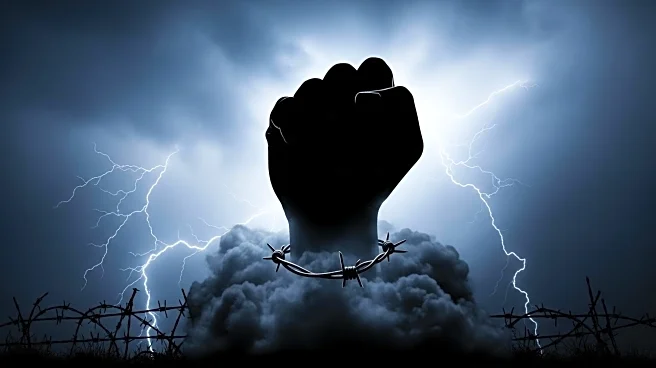What's Happening?
Hamas has issued a warning to Israel regarding the status of hostages held in Gaza, as Israel prepares for a military invasion of Gaza City. According to a statement from Hamas, hostages are being kept alongside fighters in areas designated as combat zones, exposing them to significant risks. The group has pledged to protect the captives as much as possible, but acknowledges the dangers they face due to their proximity to ongoing confrontations. This development comes as tensions escalate between Israel and Hamas, following a ceasefire agreement earlier this year.
Why It's Important?
The situation highlights the precarious position of civilians and hostages in conflict zones, raising concerns about their safety and the potential for humanitarian crises. The presence of hostages in combat zones complicates military operations and could influence international diplomatic efforts to mediate the conflict. The risk to hostages may also impact public opinion and pressure on governments to seek peaceful resolutions. Additionally, the situation underscores the challenges faced by humanitarian organizations attempting to provide aid in areas affected by conflict.
What's Next?
As Israel moves forward with its planned invasion of Gaza City, the international community may increase calls for restraint and protection of civilians. Humanitarian groups are likely to advocate for safe passage and evacuation routes for those trapped in combat zones. Diplomatic efforts may intensify to broker a new ceasefire or peace agreement, aiming to reduce hostilities and address the humanitarian needs of affected populations. The situation remains fluid, with potential for further escalation or resolution depending on the actions of both parties.
Beyond the Headlines
The ethical implications of holding hostages in combat zones raise questions about the conduct of armed groups and the responsibilities of state actors in conflict situations. The use of hostages as leverage in military confrontations may be scrutinized under international law, potentially leading to calls for accountability and justice. Long-term, the conflict could influence regional stability and affect geopolitical alliances, as countries navigate the complex dynamics of Middle Eastern politics.









